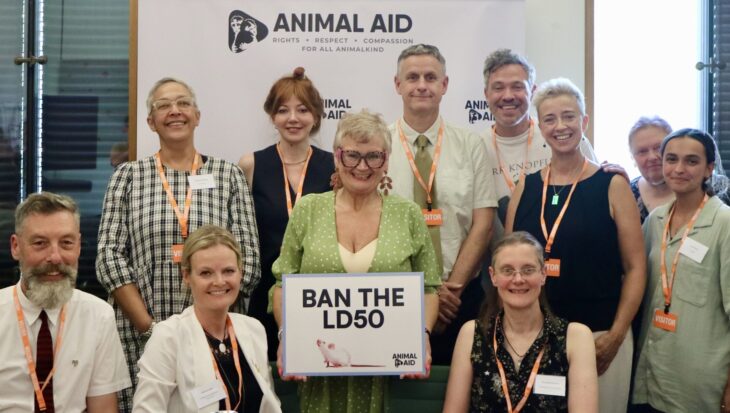Animal Aid in parliament to discuss ending animal tests
Yesterday, Animal Aid hosted a roundtable in Westminster, to meet with MPs and other invited guests to discuss the ending the LD50 and other animal tests.
Posted 02 Jul 2025

Posted on the 12th February 2010
The latest edition of the Diagnostic and Statistical Manual of Mental Disorders (DSM 5) was unveiled in draft form this week by the American Psychiatric Association. The DSM provides diagnostic criteria for mental disorders, and the revised version is already being criticised for medicalising normal human conditions. This could lead to more people being diagnosed with mental illnesses, and treated with powerful psychotropic drugs they do not need.
The expansion of the manual is driven, at least in part, by the pharmaceutical industry, which is always on the lookout for new ways to cash in on treatments. By convincing more and more people that their behaviour is indicative of a mental disorder, drug companies enjoy a boost in profits as people pressure their GPs into prescribing them unnecessary drugs. DSM 5 includes several such new ‘disorders’, including ‘hypersexual disorder’, ‘pre-menstrual dysphoric disorder’ and ‘binge-eating disorder’.
Creating new diseases in this way is known as ‘disease mongering’, and is a well-known marketing strategy used by drug companies. For example, GlaxoSmithKline began promoting the prevalence of ‘restless legs syndrome’ whilst its Parkinson’s drug Requip was being trialled as a treatment for it. The promotion paid off, as sales of Requip increased dramatically.
Persuading people to take medicines they do not need not only exposes them to unnecessary risks from side effects, but also jeopardises publicly funded healthcare systems by inflating prescription costs. It also diverts money and effort away from finding new treatments for serious illnesses that are not as marketable. And, of course, testing existing drugs for new purposes increases the numbers of animals experimented upon.
Yesterday, Animal Aid hosted a roundtable in Westminster, to meet with MPs and other invited guests to discuss the ending the LD50 and other animal tests.
Posted 02 Jul 2025

Have you heard? A breathtaking arts initiative, ‘The Herds’ will be arriving in London this Friday.
Posted 27 Jun 2025
